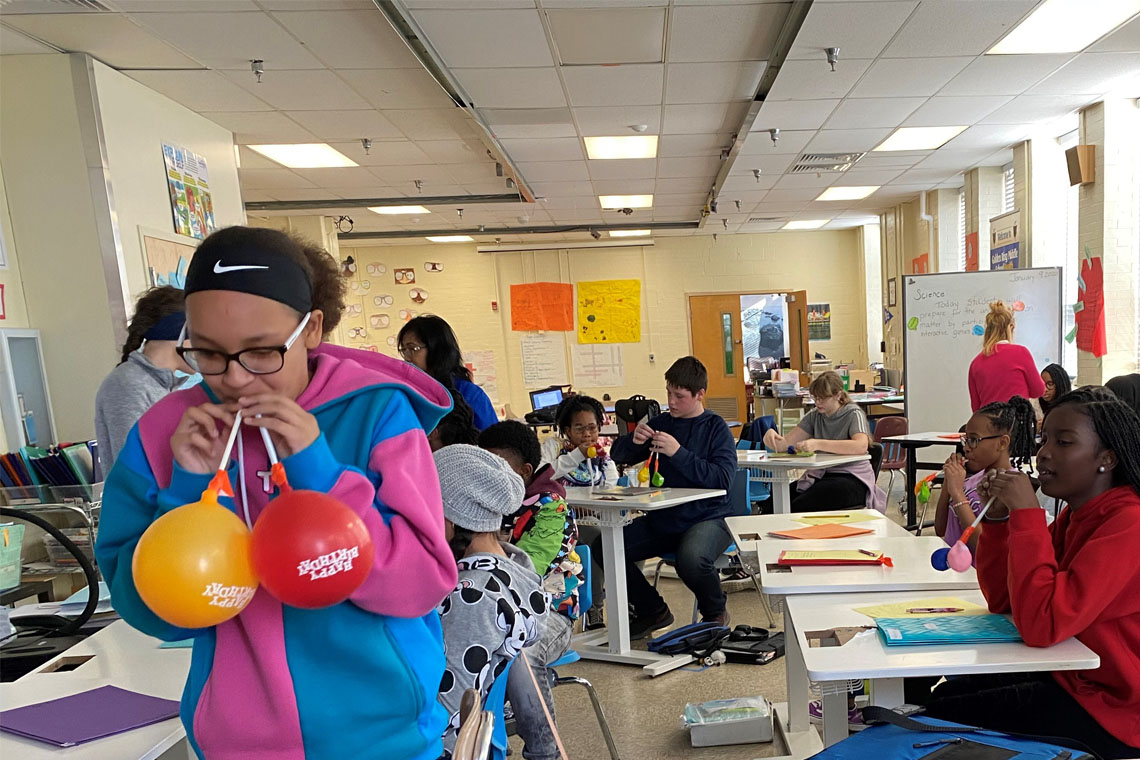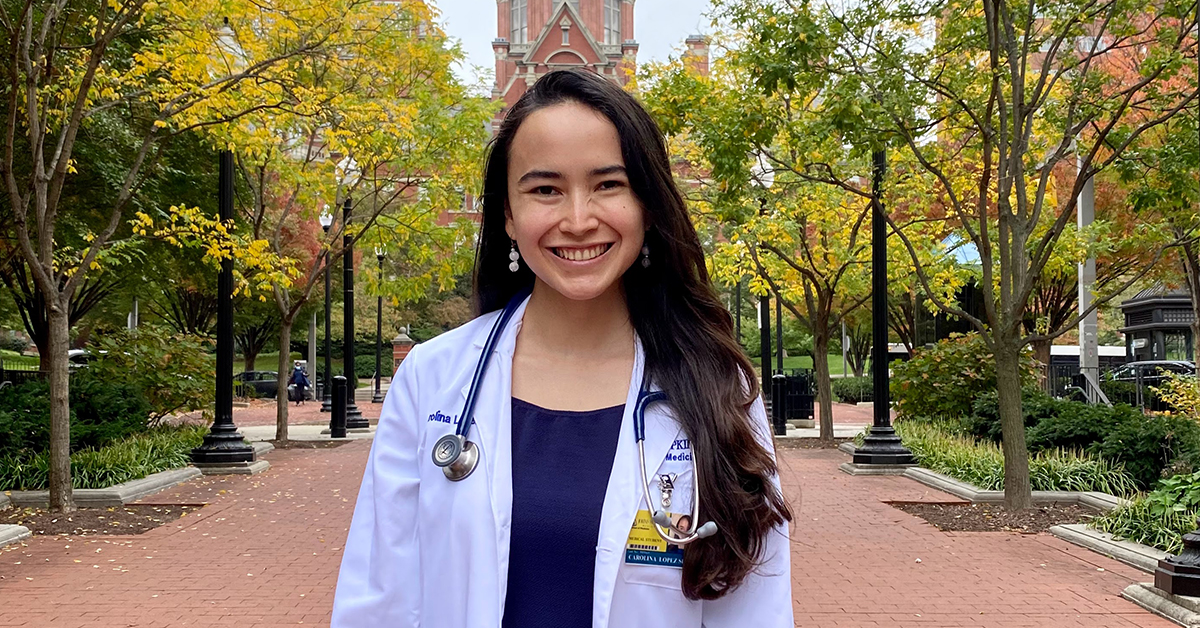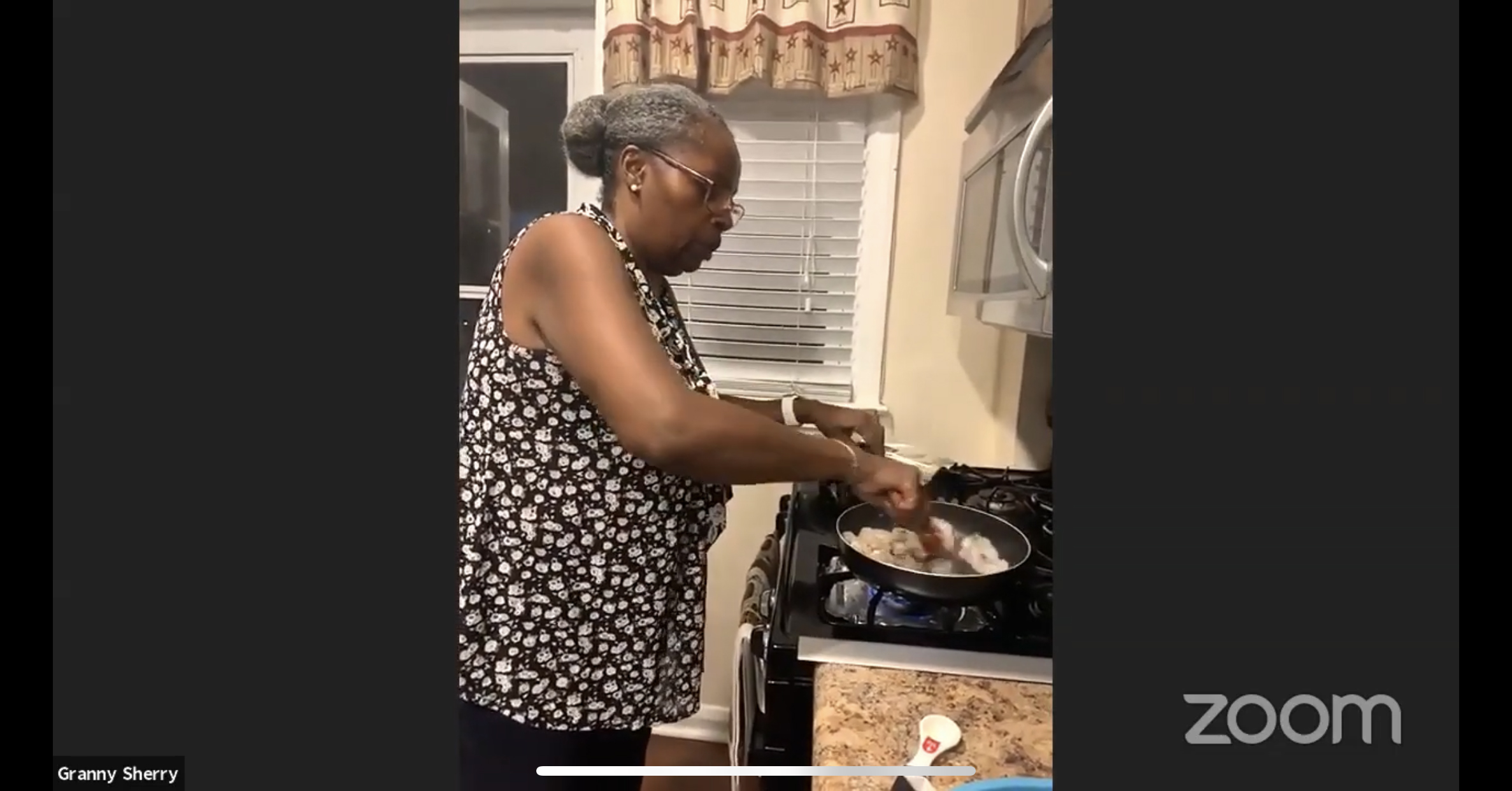During a community screening initiative earlier this summer, interns with Medicine for the Greater Good (MGG) assessed an individual’s blood pressure and discovered the person was in hypertensive crisis. MGG is a Johns Hopkins Medicine organization that tries to close the gap between communities and the health care system.
Guided by MGG’s core values, the interns walked with the patient to the Johns Hopkins Outpatient Center, remained with them as they picked up a prescription at their local pharmacy and escorted them back home.
“That’s an example of individuals going above and beyond to ensure that someone gets the care they need to improve their health,” says MGG co-director Thomas Kofi Mensah Cudjoe, M.D., M.P.H., a Robert and Jane Meyerhoff Endowed Assistant Professor of Medicine from the Division of Geriatric Medicine and Gerontology.
Now in its ninth year, MGG launched an internship program in 2018 to help students establish a network and pursue their goal of becoming physicians.
In 2017, a student from Berea College in Berea, Kentucky, reached out to MGG co-director Panagis Galiatsatos, M.D., M.H.S., assistant professor of medicine, to learn more about Medicine for the Greater Good. Since then, the program has enabled Berea undergraduates to come to Baltimore for internships with MGG each summer.
Student interns participating in the housing and hypertension screening initiative are trained and certified on accurate blood pressure measurement by Yvonne Commodore-Mensah, Ph.D., M.H.S, R.N, FAHA, FPCNA, FAAN, an associate professor at the Johns Hopkins University School of Nursing and the Bloomberg School of Public Health, and American Heart Association (AHA) postdoctoral fellow Sherry Liu, Ph.D., R.N from the school of nursing.
A few times a week for eight weeks, the six interns set up clinics in the lobbies of the Monument East and City View at McCulloh subsidized housing communities. Being in the community enables them to help those with limited or inconsistent access to care. For example, after patients answer questions about their health, the interns can educate them about hypertension and give them a blood pressure cuff provided by the AHA of Baltimore and Greater Maryland.
“We can figure out what they can afford, the conditions that they have and how to manage them based on their lifestyle,” says Hayle Mack, a rising senior.
Mack is using her time in Baltimore to learn what it takes to be a clinician as well as storing knowledge she hopes to use to educate older adults about hypertension management in her hometown of Chattanooga, Tennessee.
Another student, rising junior Gertrude Mbewe, is originally from Zambia.
“Going out into the community is very humbling for me and enlightens me to the problems that lead to health issues,” she says. “You can’t tell someone’s story just by looking at them. You have to interact.”
While allowing students to interact face to face with community members, Galiatsatos and Cudjoe also have made it a priority to include them in their interactions with patients, residents and other professionals within the Johns Hopkins Health System.
“I’m hoping people look at Baltimore as a mecca for medicine and health sciences, somewhere they can physically see the good of health, science and cutting-edge research meet the community in real time,” says Galiatsatos.
When they are not checking blood pressure in the community, the students have been assigned an evaluation of a professionally written research paper about a topic selected by Galiatsatos. By the end of their summer, they will give a presentation to their mentors and peers on their research.
MGG receives support and funding from the Johns Hopkins University School of Medicine and the Student National Medical Association. Additional funding and the blood pressure monitors given to residents are provided by the AHA.
“Programs such as these are opportunities for us to work on building sustainable collaboration with the Baltimore community,” says Commodore-Mensah. “We are working with the AHA to determine how this program can be useful for students after their time with us.”
MGG is exploring ways to expand its reach to other senior housing units and to help interns even after their time in Baltimore has ended.
“Baltimore isn’t just the capital for translational science to some extent, but also community engagement,” says Galiatsatos.



